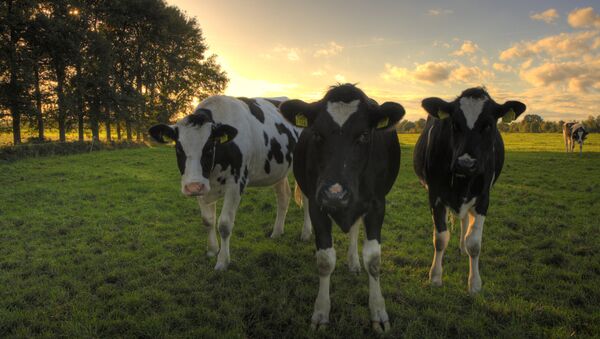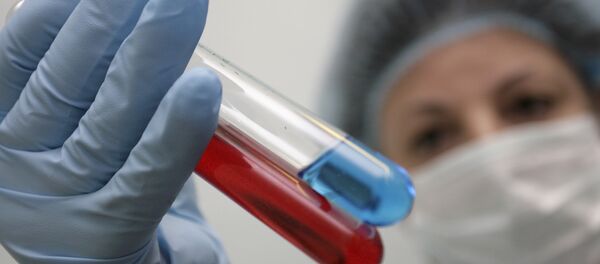According to Dennis Burton of the Scripps Research Institute in La Hoya, US, the unusually strong response of the cows' immunity to the virus particles was very surprising, given how little time they needed to manufacture universal antibodies.
Unlike their human counterparts, the antibodies of cows are more often arranged in a unique way and cope better with even the most complex "dummies" of the virus.
“Remarkably, BG505 SOSIP immunization resulted in rapid elicitation of broad and potent serum antibody responses in all four cows. Longitudinal serum analysis for one cow showed the development of neutralization breadth (20%, n = 117 cross-clade isolates) in 42 days and 96% breadth (n = 117) at 381 days,” the report in the Nature read.
As explained by immunologists, 3-4 years after infection with HIV, the human immune system often begins to synthesize so-called wide-action antibodies (bnAbs), capable of neutralizing several varieties of the virus at once.
This is however of little help to the body, since the virus by that time will already have penetrated deeply into all tissues of the body and will go into the chronic stage.
However, as Burton points out, past experiments that scientists did on mice and monkeys ended in failure, so the scientists began to look for other methods of creating vaccines that cause the body to produce "universal" antibodies to HIV.
After conducting similar experiments on calves, Burton and his colleagues noticed that calves’ body began producing bnAbs literally 1-2 months after the start of injections.
After studying their structure, scientists came to the conclusion that some of these antibodies connected with HIV perform as efficiently as human bnAbs do. The best of them, NC-Cow 1, could destroy about 70 percent of the known varieties of the immunodeficiency virus.
A set of such antibodies, which scientists cultivated in the body of cows throughout the year, could neutralize about 96 percent of the strains of HIV, which is a big step forward in developing a vaccine against the main disease of the 20th and 21st centuries.
Further experiments with animals and their antibodies will help us understand how it is possible to make human immunity work in a similar way and how to make the antibodies of cows safe for medical use in humans.




